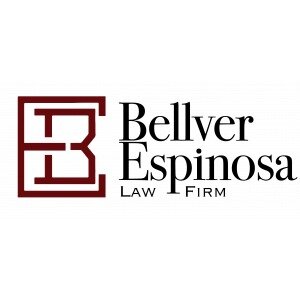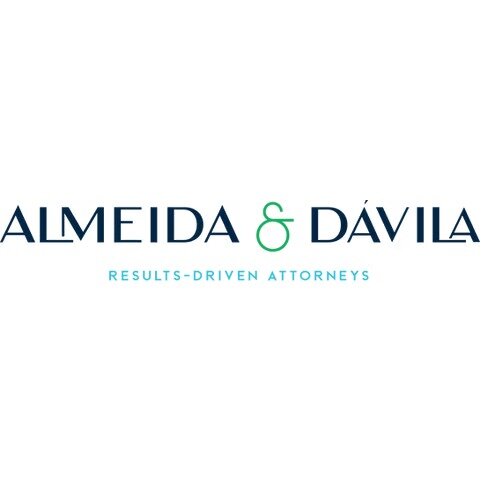Best Creditor Lawyers in San Juan
Share your needs with us, get contacted by law firms.
Free. Takes 2 min.
List of the best lawyers in San Juan, Puerto Rico
About Creditor Law in San Juan, Puerto Rico
Creditor law in San Juan, Puerto Rico, revolves around the legal rights and processes related to the collection of debts. Understanding these laws is vital for both creditors seeking to collect debts owed to them and debtors seeking protection from unjust collection practices. In San Juan, like the rest of Puerto Rico, creditor rights are overseen by a combination of federal and local regulations. Given Puerto Rico's unique status, certain U.S. federal laws are applicable, alongside local provisions tailored to the island's specific financial environment.
Why You May Need a Lawyer
There are several situations where individuals or businesses may require legal assistance in matters concerning creditors:
- If you are a creditor seeking to collect a debt and need assistance navigating the judicial process or understanding your rights.
- If you are a debtor being pursued aggressively by creditors and want to ensure your rights are respected, including protection from harassment or illegal collection practices.
- When dealing with bankruptcy issues where debtor and creditor rights must be balanced.
- If you are involved in a legal dispute concerning debt collection, contract breaches, or loans.
- For businesses, when setting up credit agreements or ensuring compliance with relevant financial regulations.
Local Laws Overview
Creditor laws in San Juan, Puerto Rico, are influenced by both local statutes and federal laws. Some key aspects include:
- The Fair Debt Collection Practices Act (FDCPA) which prevents abusive, unfair, or deceptive practices.
- The local Civil Code and Commercial Code which outline specific creditor rights and processes.
- The Bankruptcy Code provides the legal framework for bankruptcy proceedings relevant to both creditors and debtors.
- Laws concerning mortgage and secured transactions offer guidelines on foreclosures and repossessions.
Frequently Asked Questions
1. What rights do creditors have in San Juan?
Creditors have the right to collect what is legally owed to them, provided they follow legal procedures. They can also seek legal remedies to enforce contracts.
2. What protections do debtors have?
Debtors have protections under laws like the FDCPA, which guards against harassment and abusive collection practices. Puerto Rican laws also provide mechanisms for contesting unfair creditor claims.
3. Can creditors garnish wages in Puerto Rico?
Wage garnishment is allowed but is subject to specific limitations and requires a court order.
4. How does bankruptcy affect creditor claims?
Bankruptcy can discharge or reorganize debt, potentially limiting what creditors can claim. Creditors may need to file claims in bankruptcy court to seek repayment.
5. Can a creditor seize assets without a court order?
No, creditors generally cannot seize assets without due process, typically involving a court order.
6. What is the statute of limitations on debt collection?
The statute of limitations can vary depending on the type of debt, generally ranging from 3 to 10 years, after which creditors cannot legally pursue collection.
7. Do I need a lawyer to negotiate a debt settlement?
While not required, a lawyer can provide valuable guidance and help negotiate better terms.
8. How do secured and unsecured debts differ in creditor claims?
Secured debts are backed by collateral, allowing creditors to claim assets if debts are unpaid. Unsecured debts require legal action for collection.
9. What happens if I ignore a creditor's lawsuit?
Ignoring a lawsuit can result in a default judgment against you, allowing creditors to pursue collections like wage garnishment or liens.
10. How can I verify the legitimacy of a debt collector in Puerto Rico?
Verify the collector's legitimacy by requesting written verification of the debt and checking with local consumer protection agencies.
Additional Resources
For additional information and support, consider reaching out to the following resources:
- Puerto Rico Department of Justice
- Federal Trade Commission (FTC)
- Consumer Financial Protection Bureau (CFPB)
- Puerto Rico Bankruptcy Court
- Local consumer protection offices
- Community legal clinics offering free or low-cost services
Next Steps
If you need legal assistance with creditor issues in San Juan, Puerto Rico, consider the following steps:
- Consult with a local attorney who specializes in creditor law.
- Gather all relevant documents and evidence related to your case.
- Contact local consumer protection agencies for advice.
- Consider mediation or alternative dispute resolution options if applicable.
Taking these steps can help you navigate the complexities of creditor law effectively and secure the legal help you need.
Lawzana helps you find the best lawyers and law firms in San Juan through a curated and pre-screened list of qualified legal professionals. Our platform offers rankings and detailed profiles of attorneys and law firms, allowing you to compare based on practice areas, including Creditor, experience, and client feedback.
Each profile includes a description of the firm's areas of practice, client reviews, team members and partners, year of establishment, spoken languages, office locations, contact information, social media presence, and any published articles or resources. Most firms on our platform speak English and are experienced in both local and international legal matters.
Get a quote from top-rated law firms in San Juan, Puerto Rico — quickly, securely, and without unnecessary hassle.
Disclaimer:
The information provided on this page is for general informational purposes only and does not constitute legal advice. While we strive to ensure the accuracy and relevance of the content, legal information may change over time, and interpretations of the law can vary. You should always consult with a qualified legal professional for advice specific to your situation.
We disclaim all liability for actions taken or not taken based on the content of this page. If you believe any information is incorrect or outdated, please contact us, and we will review and update it where appropriate.









